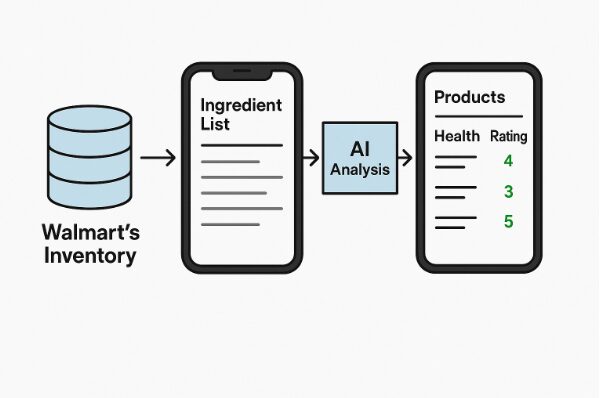“In an AI-dominated world, are we truly equipping the next generation of engineers with the tools they need to succeed?” This is a question that Chuanrui Li has been reflecting on deeply after serving as a judge and mentor at a series of national-level hackathons across the United States.
Over the past six months, Chuanrui Li was invited to judge and mentor at some of the most competitive computer science hackathons hosted by leading U.S. universities. These events included:
- 305 Hackathon
- MEGA Hackathon 2025
- Hoohacks
- Luddy Hackathon
- WildHacks
- DiamondHacks
At each of these events, Li met incredibly talented and highly motivated students and early-career engineers from diverse academic backgrounds. Their energy and creativity left a strong impression on him, and also led him to question whether current engineering education is adequately preparing these young talents for the challenges of building meaningful, innovative software in an AI-saturated world.
AI Is Everywhere—But Are We Using It Right?
At nearly every hackathon Li judged, more than 80% of the projects incorporated AI in some form. It had almost become a default expectation—projects without AI often seemed less “flashy” or competitive.
While Li supports the enthusiasm around integrating emerging technologies, he also observed a troubling pattern: many AI-based projects were essentially thin wrappers around ChatGPT or similar large language models—prompt in, response out—with minimal transformation or value-added design. In many cases, it was just the chatbot paradigm repackaged for domains like e-commerce, healthcare, finance, or transportation.
This repetition began to feel formulaic, until a standout team at DiamondHacks captured his attention. Rather than building yet another generic chatbot, the team tackled a real-world issue: food health transparency. They developed an app that analyzes ingredient lists from Walmart’s inventory and uses AI to assign health ratings to food products, allowing users to filter and rank items by nutritional quality rather than price or brand.
AI was still central to the project—but in this case, it served a clear, purposeful role by adding meaningful value through intelligent analysis, rather than just enabling a conversation interface.
Li also emphasized that not every great project requires AI.
As a long-time Costco customer, he’s personally experienced the frustration of long checkout lines during peak hours. That’s why he was impressed by another team’s app called “Skip the Line.” The app allowed users to scan items on their phones, calculate totals, complete self-checkout, and automatically sync rewards to their membership account—all within a 48-hour hackathon window, with a fully functioning iOS deployment.
Was it flashy? No.
Was it practical, polished, and impactful? Absolutely.
The project addressed a real pain point with traditional software engineering skills and strong product thinking. For Li, it was a reminder that well-executed fundamentals and a clear understanding of user needs can be just as powerful as cutting-edge technologies.
As a judge and mentor, Chuanrui Li is proud to see how quickly new engineers are embracing AI tools. However, he is also increasingly concerned that the tech community—especially students—are focusing too much on how to apply AI, without asking whether it should be applied in the first place.
This reflects a deeper issue in engineering education.
According to Li, what students need to learn is:
- To start with problem-solving, not technology
- To build strong fundamentals in computer science
- To think critically about tool selection, including when not to use AI
- To understand and question how AI works under the hood
Without this foundation, engineers may not be able to evaluate whether AI is delivering the right results—or whether a non-AI solution might be more appropriate.
Chuanrui Li believes the ultimate goal of technology is to make life more convenient, inclusive, and impactful. AI is a powerful tool—but it is not the only one. The most successful engineers of the future will not simply be those who know how to use AI, but those who understand when and why to use it.
As mentors, educators, and leaders, Li argues that it is our responsibility to foster a mindset in the next generation of engineers that is rooted in technical fundamentals, creativity, and purpose.































